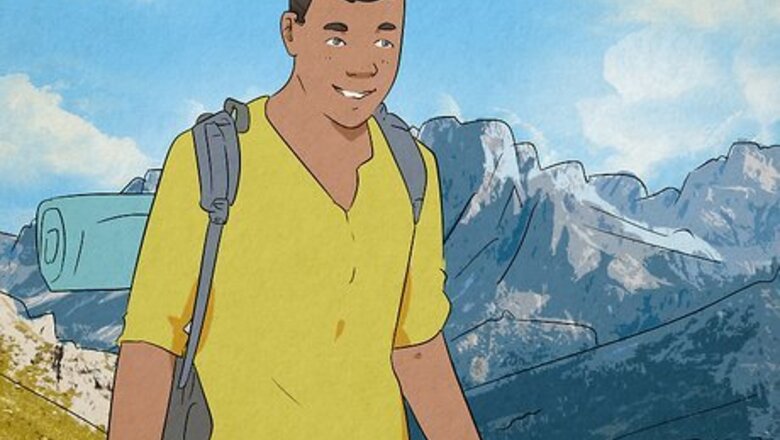
views
Evaluating if You Should Drop Out
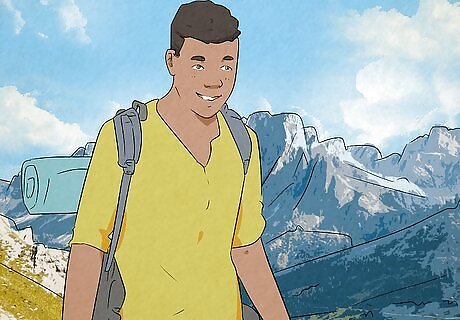
Try other options before you drop out of society. Often dropping “off the grid” is romanticized and made to sound more fun and viable than it actually is. If you're dissatisfied with society, capitalism, or social relationships, there may be ways to change your environment other than dropping out of society. If a life problem or struggle is making you want to drop out of society, get help in some other way first. Just moving to another city might provide the change in environment that you need to be happy. If your job is unfulfilling or meaningless, consider quitting and trying to find more fulfilling work before you drop out of society. If you'd like to spend more time in nature, you don't necessarily need to drop out of society. If you can take time off from your job, take a month and go backpacking and hiking, and see if that resolves your need to be away from civilization for a time.
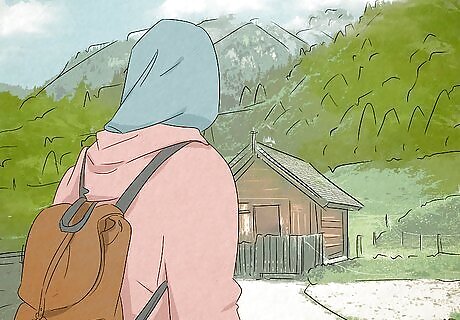
“Drop out” for a month or a season to try it out. Before you quit your job and pack up to live in the woods for good, do it for a trial period. This will give you time and experience to evaluate if this is really the right decision. For example, if you'd like to drop out of society and live in the woods, find a place where you can legally live for a season, such as the North Maine Woods. Take supplies with you: fishing and camping supplies, dried food, and a canoe. Try to live as if you had retreated from society, with as little interpersonal contact as you desire.
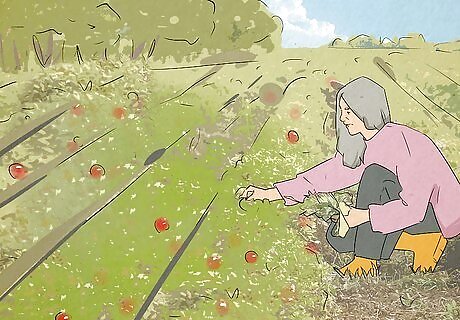
Think about money. If you're living in a remote area without a job or income, you'll soon run out of money. You'll need to sustain yourself off the land, and what you can hunt, grow, and build yourself. This lifestyle is off-putting to many people, due to the difficulty of having to provide everything for yourself. Alternately, you may be able to generate a small income even while living off the grid. For example, you could find ways to profit through selling meat, vegetables, and canned goods.
Planning Your Retreat from Society
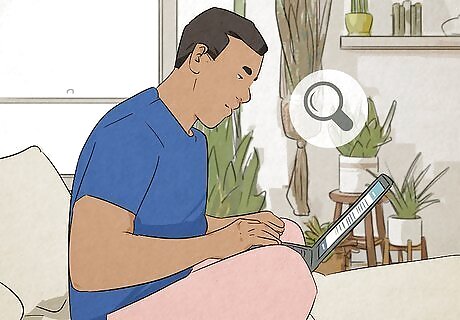
Research before you go. Buy some books about how to survive in the wilderness. The wilderness section of the local bookstore or library will help you. In addition to wilderness skills, you'll need to understand the essentials of survival (food, water, shelter) and plan to ensure all of these. Understand how to forage and hunt for your own food in a remote environment. Figure out what you'll need to do in the case of dangerous weather (flooding, lightning strike, blizzard) while you're in the wilderness.

Choose a location. You're not going to be able to drop out of society in a place like the city, so do some planning and figure out where you're going to go. Go somewhere with a low population and a ready food source—whether fertile ground that can be planted with a garden, or a nearby stream to catch fish in. Large amounts of vegetation and animal population are good indicators of a natural environment that can support life. Make sure that you have a constant and nearby water source. This could be a river or stream, a natural spring, or a lake. Water is the most important element for survival, and you'll need to use it on a daily basis, so make sure the water is clean and plentiful. Research the types of wildlife that you can expect in whatever location you choose to live in. For example, if you're in a forest, are you likely to encounter bears?

Learn some survival skills. It's important to know how to survive outside of society before you drop out, especially if you're going to be living in a harsh or remote area. Start by learning how to use basic weapons and tools: a knife, a shovel, rake, hoe, and potentially a gun that is suitable for bringing down most animals without damaging their meat. You'll likely need to make serious changes to your diet. Living remotely, you'll need to sustain yourself, and this can be done through eating animal proteins and foraging, or growing vegetables in a small garden. You should also look into learning how to preserve (dry or pickle) meat and vegetables, so you will have enough food to survive during winter months.
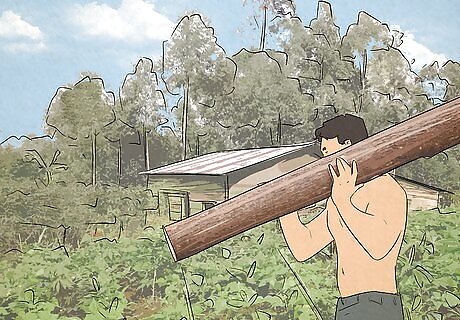
Learn how to build a shelter. Unless you're planning to live in an already-existing “off the grid” house or rent a cabin, you'll likely need to build your own housing. You can either purchase construction materials before you leave society, or use natural materials (trees, etc.) found in the woods. Consider that your accommodation will also need to be repaired and renovated from time to time. You'll need to have money saved up to invest in these expenses. You should also have a plan in place for finding land to live on. The most legal method is to find a cheap, remote plot of land and purchase it. If you would prefer not to own land, or plan to move around frequently, you may find yourself living illegally on National Forest or private property.
Living Away from Society

Make an exit plan that minimizes expense and luggage. Use cash to take public transportation out to the wilderness if you don't want to own and maintain a car. You'll want to have your “off the grid” living situation set up before you leave, so that you're not carrying luggage or construction supplies when you leave. Don't burn your bridges when you leave. Notify family and close friends where you'll be, quit your job, and end your apartment lease.
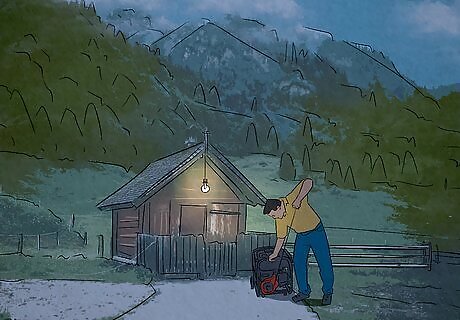
Decide if you can do without electricity. Living without electricity is one of the most challenging aspects of dropping out of society. However, if you have a large enough wilderness abode and you decide that you'd like to have a source of energy, you can purchase a small generator. Remote houses also often have solar panels, or devices to harness wind or water energy. If you decide to live without a generator or other means of electricity, plan to rise when the sun does and go to bed when it sets. Without electricity, you'll need to cook using only fire or a gas stove, or plan to eat the majority of your food (especially vegetables) raw.
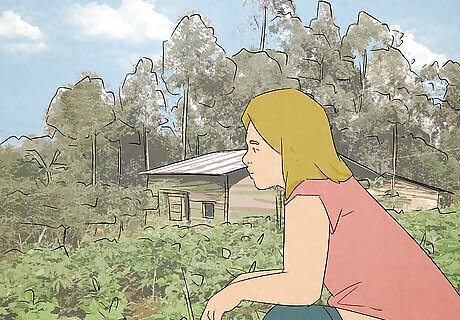
Have a plan for sanitation. Some individuals who live off the land opt to use a bucket as a bathroom, or to dig a latrine in the woods. Waste should always be kept far from food, and downhill from living quarters. If you are a male, there are few restrictions on where you can pee. Depending on your budget, you could purchase a composting toilet (which turns waste into compost) for around $1,000 at Amazon or a large hardware store. Sanitation also includes water purification, as drinking unclean water can lead to giardia infection or other, more serious, health problems. Always boil water before drinking it, or purchase sanitation tablets or a sanitizing water-strainer.
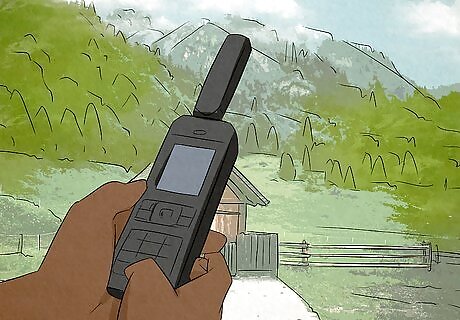
Bring a satellite phone. Even if you're living completely “off the grid” and away from human contact, you'll still need a way to communicate in dire situations. If you spend a year and a half in the wild and decide you don't want to spend an indefinite amount of time there, you might want to call and ask for help getting out of your current location. Additionally, if a medical emergency arises, you might need society to help you and help you quickly. Even on your training trips, bring your satellite phone. You might get in a dangerous situation more quickly than you think.
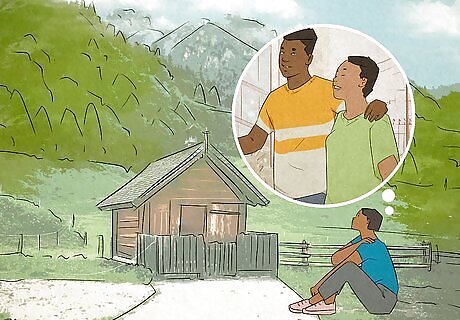
Keep other people in mind. If you have close friends or family, it will be hard on them if you vanish overnight. Especially if you plan to live in an area without electricity or access to a postal route, you will need to figure out how to maintain communication. If you're dropping out of society, only do so after thinking hard about the consequences for yourself and others.


















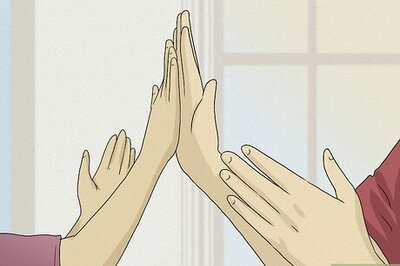
Comments
0 comment